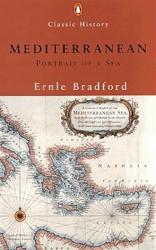Over at Lenny’s Tomb, Roobin set the cat amongst the pidgeons with his post on “the just-about-Gramscian theory of successful rioting” last Saturday, with both Louis Proyect and Andy Newman ridiculing it for sections like the one below:
The good news is, given preparation (the opportunity for which, of course, is normally denied), the average citizen can match a police officer blow for blow. A police officer has access to hand arms, in particular clubs, but the ordinary citizen can get and/or easily improvise these. The same is true of body armour and self-defence. The police have roadblocks, the people barricades. The police can use sturdy, powerful vehicles, so can the public. The police can use tools such as water cannons to disperse a crowd but a resourceful crowd can use similar devices to reverse effect. The police can use small firearms. Even in Britain it is not impossible for a member of the public to get hold of some. Any weapons won from the police in battle can immediately be used against them.
At first glance it does sound bad, the worst sort of pseudo-anarchist posturing, or “squadist juvenilia, as Andy called it. Louis Proyect was equally scathing, dismissing it as “complete idiocy”. And they would be right to do so, if it were not for one tiny detail: Roobin isn’t actually calling for fighting the police on their own terms, as the next paragraphs of his post makes clear:
he point is the police rely upon superior organisation and centralised control, not firepower. There are relatively few police officers in any country, never enough to deal with a general movement of people. This is one of the reasons why movements should be as numerous and broad as possible, to reduce the harm to life and limb to a minimum. When 2 million people are intent on using Hyde Park for a demonstration there is nothing the state can do to stop them (without seriously upping the ante).
When 125,000 miners go on strike (in albeit heightened circumstances), and are hung out to dry by union bureaucracy, the state is able to shift thousands of officers to mining areas to attack pickets and lay siege to villages, concentrating its all its power on its scattered, isolated
opponent.
In context it all sounds a lot less silly, doesn’t it? Roobin is making a quite uncontroversial, even obvious point here, which is the opposite of what Andy or Louis accuse him off. He’s actually arguing that you can’t use socalled black bloc
tactics against the police or the state, as they are better organised, better trained and have a greater legitimacy in using violence; instead socialists should organise en masse. Granted, the point could’ve been argued better, but I don’t think Roobin deserves this scolding from Andy and Louis, the more so because they seem to respond more to what they want to read, than what Roobin has actually written.
